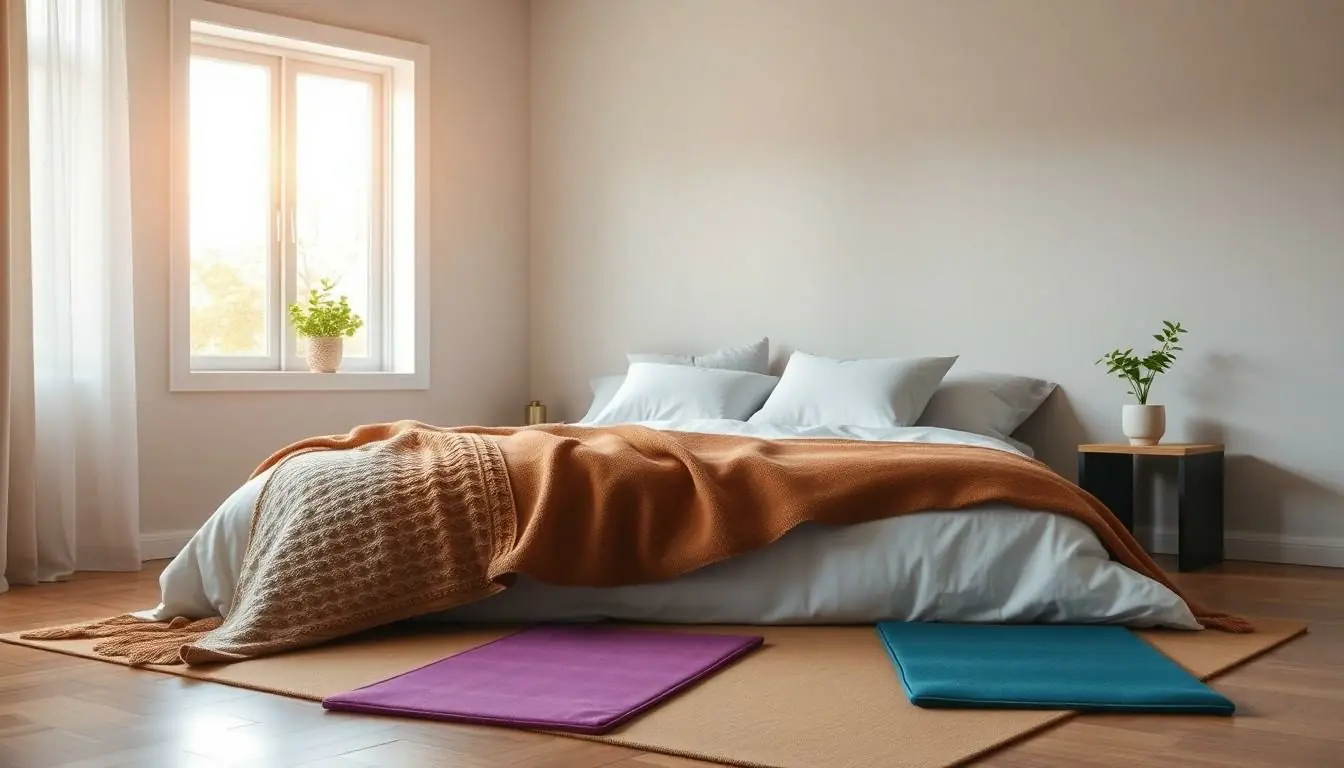In a world that glorifies hustle and grind, rest often gets a bad rap. But let’s face it: without proper downtime, even the most ambitious go-getter risks turning into a cranky zombie. Rest wellness isn’t just about catching Z’s; it’s about recharging the mind and body to tackle life’s challenges with renewed vigor.
Imagine a life where you wake up refreshed, ready to conquer the day instead of dragging yourself out of bed like a sloth on a Monday morning. Rest wellness can transform that dream into reality. It’s time to embrace the power of relaxation and discover how prioritizing rest can lead to a happier, healthier, and more productive life. After all, who knew that doing nothing could be the secret ingredient to everything?
Table of Contents
ToggleUnderstanding Rest Wellness
Rest wellness encompasses the practices and habits that promote restorative relaxation. Prioritizing adequate rest contributes significantly to overall health.
Definition of Rest Wellness
Rest wellness refers to intentional periods of downtime that rejuvenate the mind and body. It includes activities such as sleep, meditation, and gentle leisure. Through these practices, individuals recharge their energy levels and enhance mental clarity. Engaging in rest wellness fosters a balanced lifestyle, emphasizing the need for recovery in daily routines.
Importance of Rest Wellness
Rest wellness plays a critical role in preventing burnout and improving productivity. Quality rest enhances cognitive function, memory, and emotional stability. Without sufficient downtime, stress levels rise, leading to negative health outcomes. Prioritizing rest can boost creativity, focus, and overall happiness. Studies show that individuals who incorporate regular rest into their schedule experience greater fulfillment in both personal and professional life.
Benefits of Rest Wellness

Rest wellness offers numerous benefits that enhance both physical and mental health. Prioritizing sufficient downtime can lead to improved overall well-being.
Physical Health Benefits
Rest wellness significantly supports physical health. Quality sleep aids in the body’s recovery processes, promoting muscle repair and growth. Adequate rest also strengthens the immune system, lowering the risk of illnesses. Studies indicate that individuals who embrace restorative practices experience lower blood pressure and improved heart health. Incorporating intentional relaxation into daily routines encourages balanced hormone levels, which contributes to weight management and metabolic efficiency. Regular rest decreases stress-related fatigue, enabling people to engage in physical activity more effectively.
Mental Health Benefits
Mental health benefits from rest wellness are profound. Engaging in restorative activities reduces anxiety and enhances emotional resilience. Research shows that quality downtime improves cognitive functions like memory and decision-making. Intentional rest fosters creativity, allowing the mind to recharge. Regular meditation or mindfulness practices can lead to decreased symptoms of depression and increased overall happiness. Prioritizing mental rest equips individuals with better coping strategies during stressful situations. Implementing rest in daily life promotes an overall sense of calm and stability.
Practices to Enhance Rest Wellness
Prioritizing rest wellness involves various practices that foster relaxation and rejuvenation. Implementing effective strategies can significantly improve overall well-being.
Sleep Hygiene
Establishing a consistent sleep schedule promotes better rest quality. Aim for 7 to 9 hours of sleep per night for optimal recovery. Creating a comfortable sleep environment enhances relaxation; dark, cool, and quiet bedrooms encourage restful nights. Limiting screen time at least 30 minutes before bedtime can reduce light exposure, supporting melatonin production. Additionally, avoiding caffeine and heavy meals close to bedtime helps in falling asleep faster, fostering a more restorative state.
Mindfulness and Relaxation Techniques
Incorporating mindfulness practices enhances mental clarity and emotional stability. Techniques like meditation, deep breathing, and yoga reduce stress and promote relaxation. Engaging in these activities for at least 10 to 20 minutes a day cultivates a sense of calm. Journaling can also serve as a powerful tool for processing thoughts and emotions, contributing to overall mental wellness. Listening to soothing music or nature sounds during downtime allows the mind to unwind, further enhancing restfulness.
Nutritional Considerations
Nutritional choices impact energy levels and overall wellness. Consuming a balanced diet rich in fruits, vegetables, whole grains, and lean proteins supports sustained energy throughout the day. Maintaining hydration plays a critical role; drinking enough water helps the body function properly and avoids fatigue. Incorporating foods with sleep-inducing properties, such as almonds and chamomile tea, can further enhance rest quality. Avoiding excessive sugar and processed foods contributes to stable energy levels, which promotes restful sleep and relaxation.
Challenges to Achieving Rest Wellness
Achieving rest wellness presents various challenges that many individuals face daily. Identifying these obstacles is essential for promoting restorative practices.
Common Obstacles
Busy schedules often interfere with adequate downtime. Stress from work, family obligations, and personal commitments reduces opportunities for relaxation. Technology use, particularly late at night, disrupts sleep patterns and contributes to fatigue. Inconsistent sleep environments can hinder the quality of rest. Additionally, mental health conditions such as anxiety or depression may complicate the ability to engage in restorative activities. These factors collectively create barriers that prevent individuals from fully embracing rest wellness.
Strategies to Overcome Challenges
Establishing a consistent sleep routine contributes significantly to improving rest wellness. Ensuring the sleep environment is comfortable, quiet, and dark enhances sleep quality. Incorporating mindfulness techniques like meditation or deep breathing exercises helps manage stress levels effectively. Limiting screen time before bed can promote healthier sleep habits. Prioritizing a balanced diet along with proper hydration supports optimal energy levels, further aiding relaxation. By adopting these strategies, individuals can tackle the challenges that impede their ability to achieve rest wellness.
Prioritizing rest wellness is a game changer for anyone seeking a healthier and more balanced life. By embracing restorative practices individuals can unlock their full potential both physically and mentally. Quality rest not only enhances productivity but also fosters emotional resilience and creativity.
Overcoming the common barriers to achieving rest wellness is essential in today’s fast-paced world. With intentional strategies like establishing a consistent sleep routine and incorporating mindfulness techniques individuals can significantly improve their overall well-being.
Ultimately a commitment to rest wellness leads to a more fulfilling and vibrant life. It’s time to recognize the power of rest and make it an integral part of daily routines.








